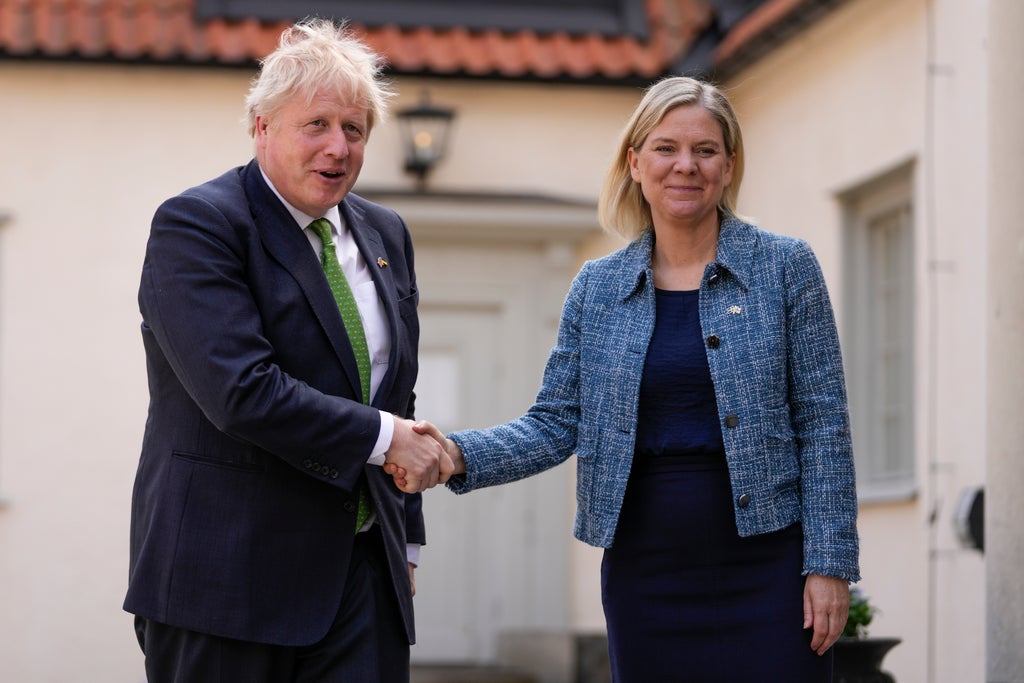
Britain pledged to defend Sweden if the country came under attack, with Prime Ministers Boris Johnson and Magdalena Andersson signing a security assurance deal outside Stockholm on Wednesday.
Sweden and Finland are pondering whether to join NATO following Russia's invasion of Ukraine on Feb. 24. Johnson is later expected to make a similar defense commitment to Finland, where he will meet with President Sauli Niinisto.
The agreement will “fortify northern Europe’s defenses, in the face of renewed threats,” Johnson said in a statement, adding it “is a symbol of the everlasting assurance between our nations."
“These are not a short-term stop-gap, but a long-term commitment to bolster military ties and global stability, and fortify Europe’s defenses for generations to come,” Johnson said in the statement . Finland shares a 1,340-kilometer (830-mile) land border with Russia.
The Kremlin has warned of “military and political repercussions” if Sweden and Finland decide to join NATO.
Should Sweden and Finland apply, there will be an interim period lasting from when an application has been handed in until all 30 NATO members’ parliaments have ratified it. The two Nordic countries are expected to announce their positions on NATO membership in the coming days.
Johnson also offered during his one-day visit to increase the deployments of British troops and military assets to the region.
He met with Andersson in Harpsund, the country retreat of Swedish prime ministers, which is located about 90 kilometers (55 miles) southwest of Stockholm.
Britain is already present in the Baltic Sea areas with the Joint Expeditionary Force, which consists of 10 Northern European nations: the United Kingdom, Sweden, Finland, Denmark, Estonia, Iceland, Latvia, Lithuania, the Netherlands and Norway.
In 2017, Sweden and Finland joined the British-led military rapid reaction force, which is designed to be more flexible and respond more quickly than the larger NATO alliance. It uses NATO standards and doctrine, so it can operate in conjunction with NATO, U.N. or other multinational coalitions. Fully operational since 2018, the force has held a number of exercises both independently and in cooperation with NATO.







